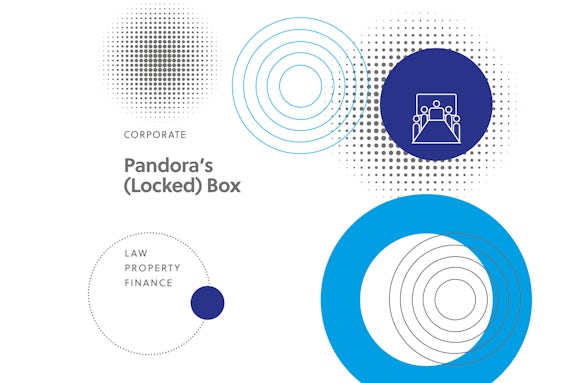
April 22, 2025

Locked box accounts are arguably simpler than completion accounts when working out any balancing payment in a business sale. Completion accounts, being done after completion, delay the final payment and are further cost. With a locked box deal, the price is based on an agreed pre-completion balance sheet. Any balance is “locked away”. Except, it’s not really …
The dark art to agreeing locked box accounts is to make sure that leakage is addressed. This is cash that the target can pay outside the ordinary course of business which deviates from the locked box balance sheet but does not need to be repaid.
If you’re not careful, leakage can turn a locked box into Pandora’s Box. As ever, the devil is in the detail. Common leakage problems include:
The takeaway here is that while locked box accounts are simple in theory, it will be important to work out what is happening to any cash between their date and the completion date. There can be complexities regarding leakage – with corresponding negotiation of the wording in the agreement. It’s worth considering what leakage issues might arise before committing to a locked box arrangement, as the overall cost and difficulty in agreeing these arrangements might mean that completion accounts are a preferable option.
The Corporate Team at Gilson Gray is always happy to discuss the differences between the two mechanisms and transaction structure, if you want to discuss this further.
If you would like further information on the topic discussed in this blog, please contact Calum Crighton by email: ccrighton@gilsongray.co.uk or by phone: 0131 285 7841 / 07825 884 961. You can also view Calum’s profile by clicking hereor if you would like to find out more about our Corporate Team, please click here.
The information and opinions contained in this blog are for information only. They are not intended to constitute advice and should not be relied upon or considered as a replacement for advice. Before acting on any of the information contained in this blog, please seek specific advice from Gilson Gray.

Calum is a Partner, heading up our Oil & Gas/Energy team. He is recognised as a leader in his field and well-respected for ability to advise all companies from oil & gas majors right through to SMEs, with a particular expertise in decommissioning.